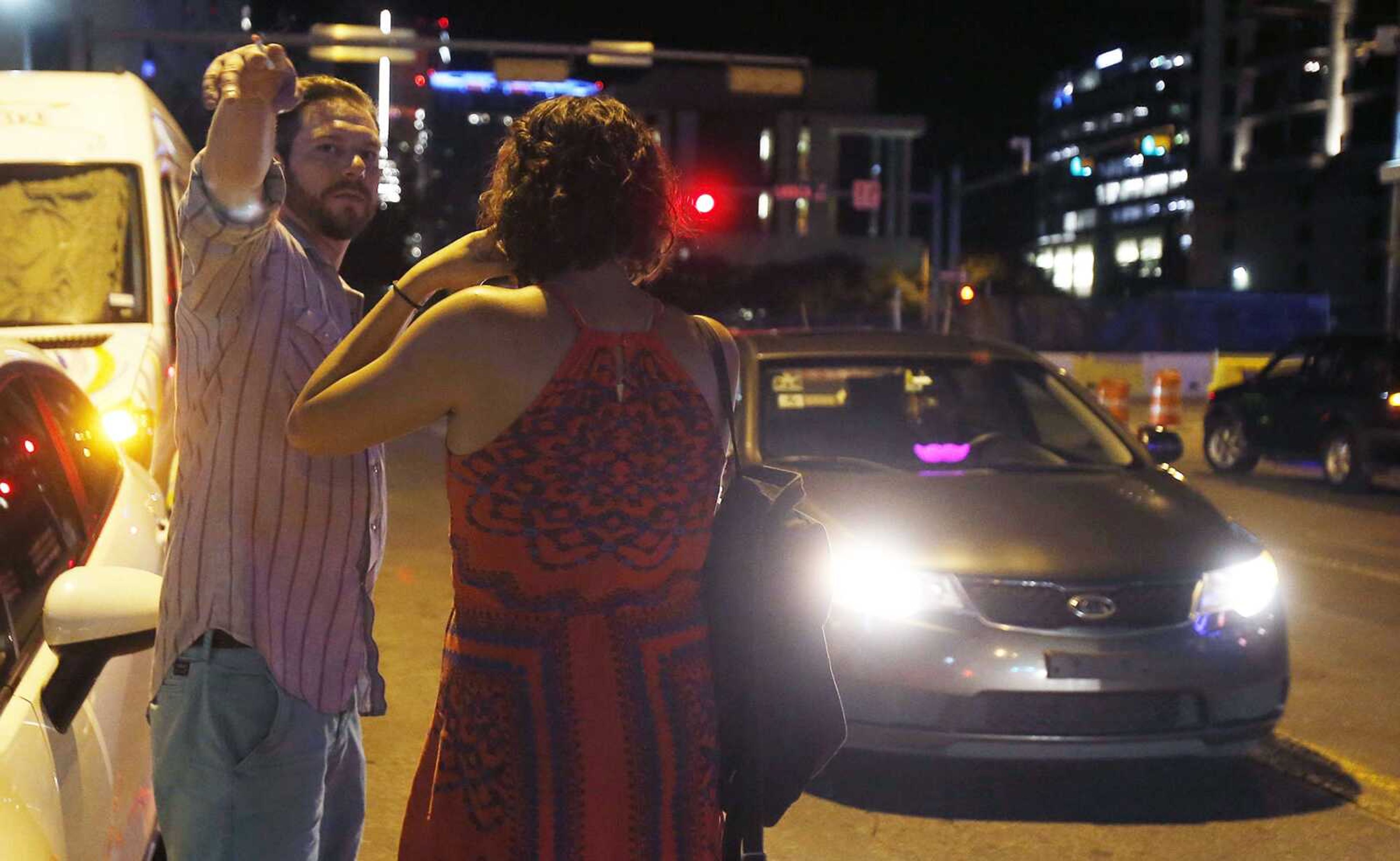Uber, Lyft: Failure of Missouri bill makes growth unlikely
JEFFERSON CITY, Mo. -- Missouri lawmakers hoping to help ride-hailing companies such as Uber and Lyft failed again this legislative session, and the companies say they are unlikely to begin service outside the state's largest cities any time soon. At issue is whether the companies, which let people use smartphone apps to book and pay for a private car service, will be governed by uniform statewide rules or by varying rules from city to city...
JEFFERSON CITY, Mo. -- Missouri lawmakers hoping to help ride-hailing companies such as Uber and Lyft failed again this legislative session, and the companies say they are unlikely to begin service outside the state's largest cities any time soon.
At issue is whether the companies, which let people use smartphone apps to book and pay for a private car service, will be governed by uniform statewide rules or by varying rules from city to city.
The companies want statewide rules, saying differing rules make it hard for them to do business. Kansas City, for example, imposes a $45,000 per company annual fee. St. Louis requires fingerprinting, which is another sticking point.
Uber and Lyft, which stopped doing business in Missouri in 2014, conduct background checks on drivers they say are sufficient to ensure rider safety.
Legislation introduced during the session that ended May 13 would have required background checks, but no fingerprints, which the companies say create an unnecessary barrier to hiring drivers because of false positives for criminal records. Critics pushed back, saying fingerprinting drivers would improve rider safety.
The bills also would have required the companies to pay a $5,000 annual fee and meet other conditions. They would have exempted the services from local regulations.
Uber said passing the statewide rules would have allowed the company to hire as many as 10,000 new drivers in the state by expanding to cities including Springfield, St. Charles and St. Joseph.
That appears unlikely to happen now that it's up to cities to impose rules on the service.
"The regulatory uncertainty certainly slows down our ability to launch new markets," Uber spokeswoman Lauren Altmin said in an email.
Uber currently operates in Columbia, Kansas City and St. Louis.
Lyft pulled out of Missouri after a circuit judge in 2014 blocked the company from operating in St. Louis pending a lawsuit the Metropolitan Taxicab Commission filed, contending Lyft should be required to follow the same regulations as taxicabs and limousine services.
"We are hopeful state leaders can find a way over the next year to join over 30 states that have passed common-sense rules for ridesharing," Lyft spokeswoman Alexandra LaManna said in a statement.
Rep. Kirk Mathews, a Pacific Republican, said the Legislature's failure to enact his proposal for statewide regulations will mean lost job opportunities for those interested in driving in smaller cities, as well as at least another several months without those services for potential riders in other areas of the state. The 2017 legislative session begins in January.
Missouri Chamber of Commerce and Industry president and CEO Dan Mehan said the bill's death "sends the wrong signal" to millennials, which he said could hinder recruitment efforts by companies.
Kansas City Democrat Rep. Jeremy LaFaver said it's ride-hailing companies' fault they were unable to negotiate with lawmakers. He said those companies can expand in Missouri without statewide regulations, but instead need to work with cities to do so.
The legislation on ride-hailing companies in Missouri comes during a national debate between proponents of the service and those concerned about safety.
Uber agreed in April to pay $10 million to settle allegations by California prosecutors it misled passengers about the quality of its driver background checks. Ride-hailing companies suffered another blow when Austin residents voted in May to keep fingerprint background checks in place. Uber and Lyft left the city in response.
St. Louis Metropolitan Taxicab Commission chairman Tom Reeves in a statement said ride-hailing companies are permitted in the area but said Uber is not operating legally because its drivers aren't getting fingerprinted. He said commission agents will ticket Uber drivers.
Connect with the Southeast Missourian Newsroom:
For corrections to this story or other insights for the editor, click here. To submit a letter to the editor, click here. To learn about the Southeast Missourian’s AI Policy, click here.









